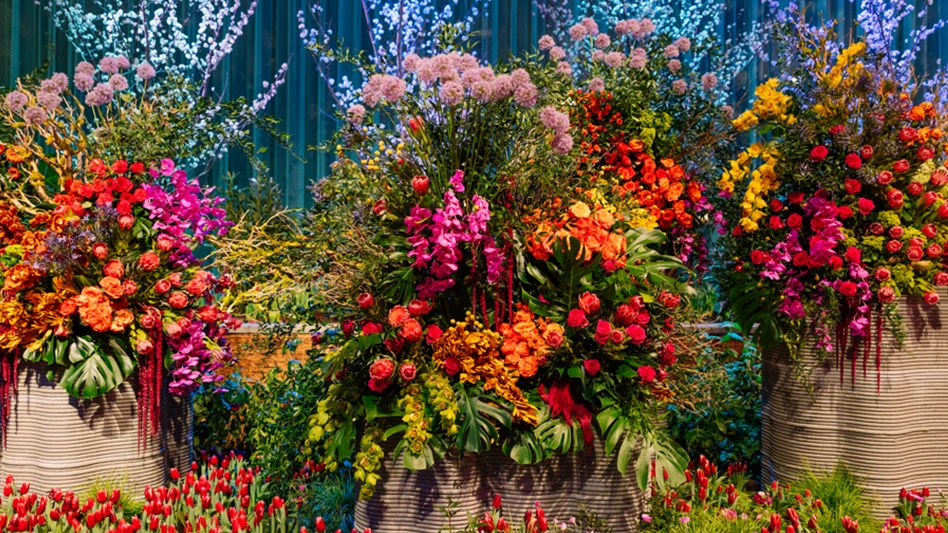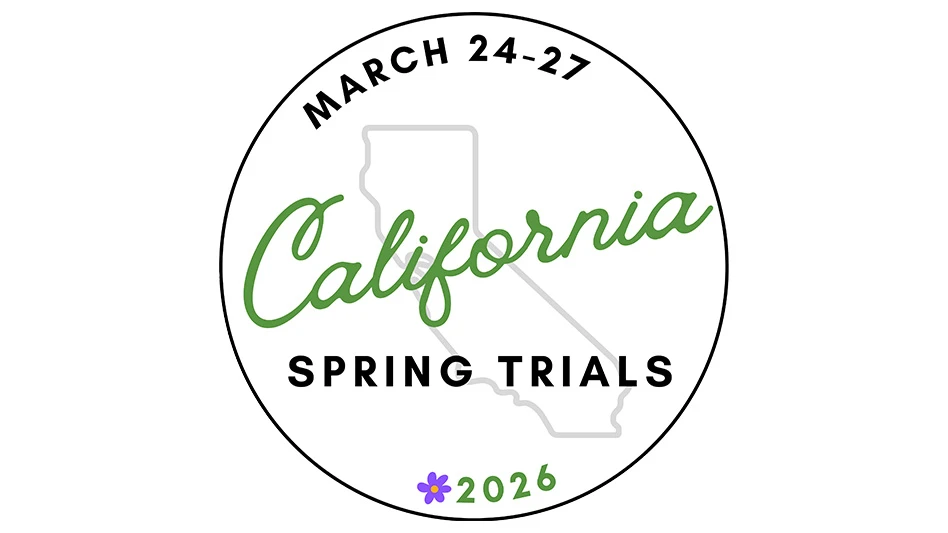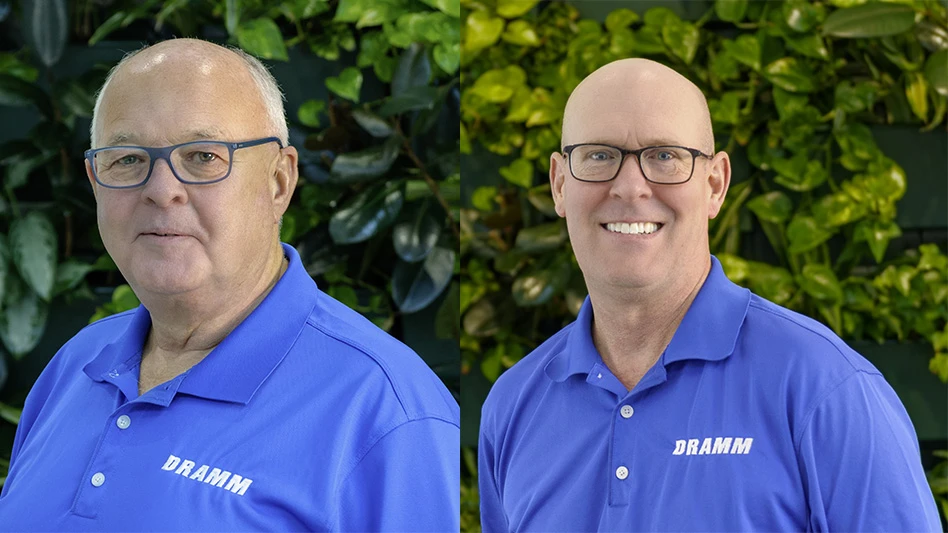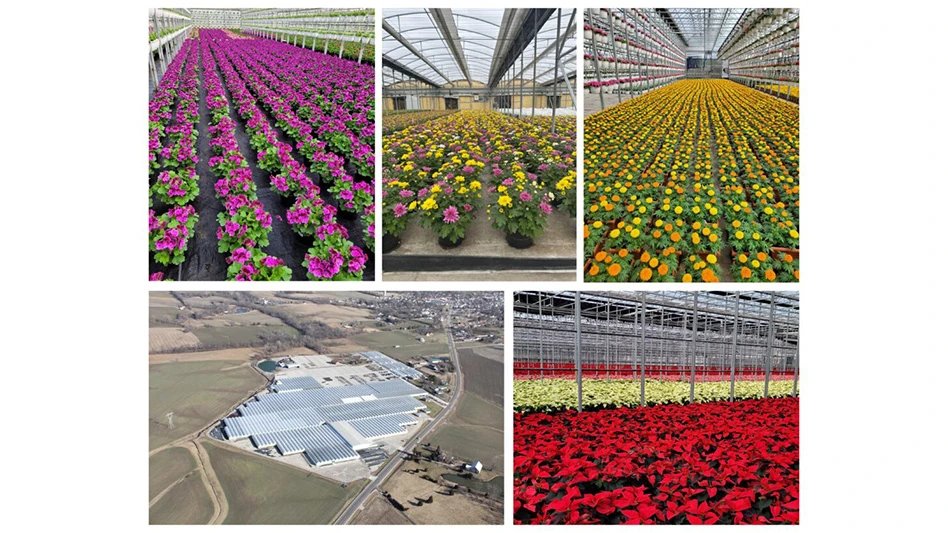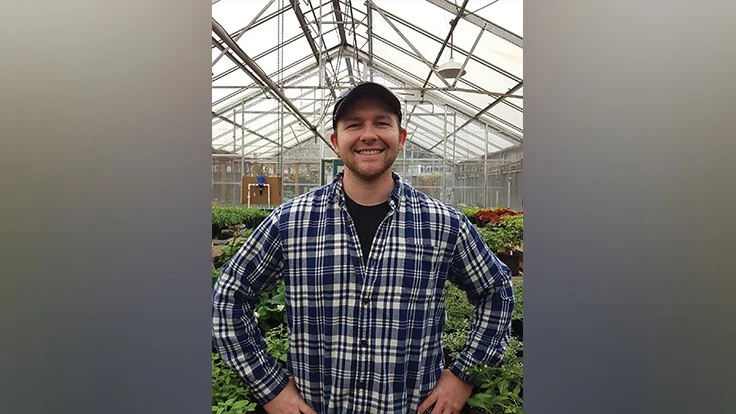

WHY HE’S GREAT: Brandon Coker, the trial gardens manager at the University of Georgia, says he was “basically born with dirt on his hands.” Growing up in Georgia, he says both of his parents were gardeners, growing both vegetables and flowers at home. When he took his first job, it was at a perennial grower in his hometown of Lexington, Georgia. And when it came time for college, he first attended Abraham Baldwin Agricultural College (ABAC) before transferring to UGA and getting his bachelor’s degree in agriscience and environmental systems.
For the past three years, he has run UGA’s trial gardens — what he calls his “dream job.” Every day he goes to work, Coker feels he’s both doing something he loves and is helping the industry at large.
“I actually told my wife before we started dating that my dream job would be to work for the University of Georgia, play in the dirt all day and get paid for it,” Coker says. “And wouldn’t you know it, I found a job where I get to play in the dirt, get paid for it and work for UGA.”

MAKING AN IMPRESSION: After working for a landscape designer in Atlanta for a year, Coker moved to Pike Nurseries in Atlanta, where he spent six years as a grower and manager. While he was working at Pike, Dr. John Ruter visited Coker unannounced to tell him about an opening at UGA running the trial gardens. Coker had worked for Ruter at UGA for three years and considers him a mentor. As Coker tells it, Ruter said he thought the job was perfect for Coker because he loved the work itself and always worked hard and worked happy.
“He said he had been thinking about me and he was now the director of the trial gardens,” Coker says. “And the trial gardens manger position was about to come available. He strongly encouraged me to apply and it was such a wonderful moment for him to come in there, looking for me, looking for someone to run the show here.”
ENGAGING WITH STUDENTS: In UGA’s trial gardens, there are several benches where students will stop and sit to take a break, eat lunch or do their work outside. When he is in the gardens and notices students eyeing a particular plant, he takes the opportunity to engage them on what the plant is and how it’s grown. He feels it’s part of his duty to help non-horticulture students engage with flowers.
“It’s so neat to talk to them,” Coker says. “And you find students who have never seen a crop produced but are genuinely interested in learning about what we do. Being around students who are learning and trying to figure out what the heck they want to do with the rest of their life is really exciting.”
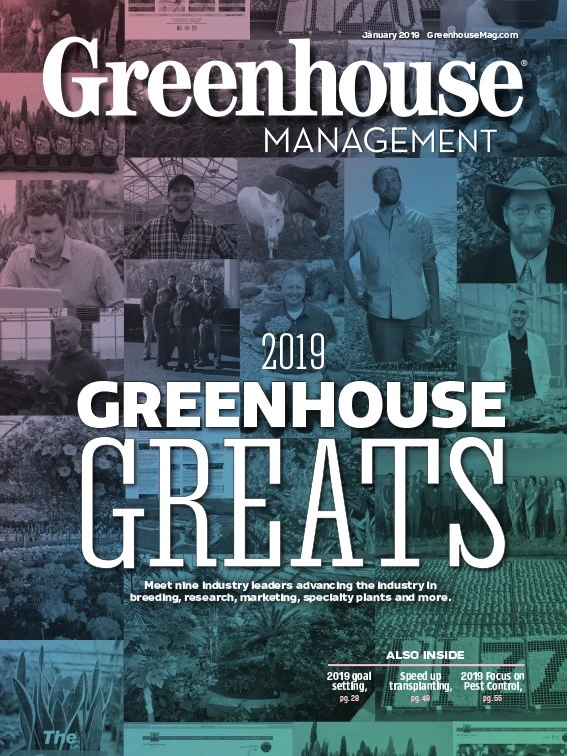
Explore the January 2019 Issue
Check out more from this issue and find your next story to read.
Latest from Greenhouse Management
- Pennsylvania Horticultural Society announces 2025 Gold Medal Plant winners
- GIE Media Horticulture Group wins five regional 2025 Azbee Awards of Excellence
- Terra Nova Nurseries introduces rust-free and disease-resistant heucherella
- John T. Nickel, founder of Greenleaf Nursery Co., passes away at 89
- Three tours offered at 2025 Farwest Show
- Garden Media Group announces sixth annual Women in Horticulture Week
- Star Roses and Plants announces National Knock Out Rose Day
- The Growth Industry Episode 4: How federal budget cuts are affecting horticulture nonprofits


